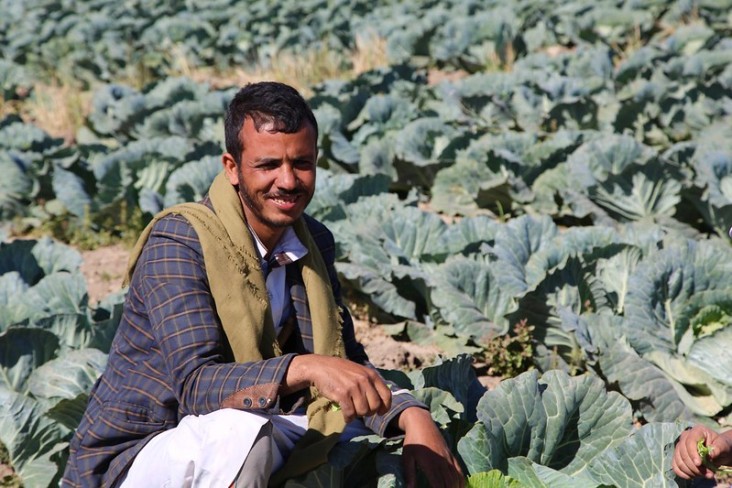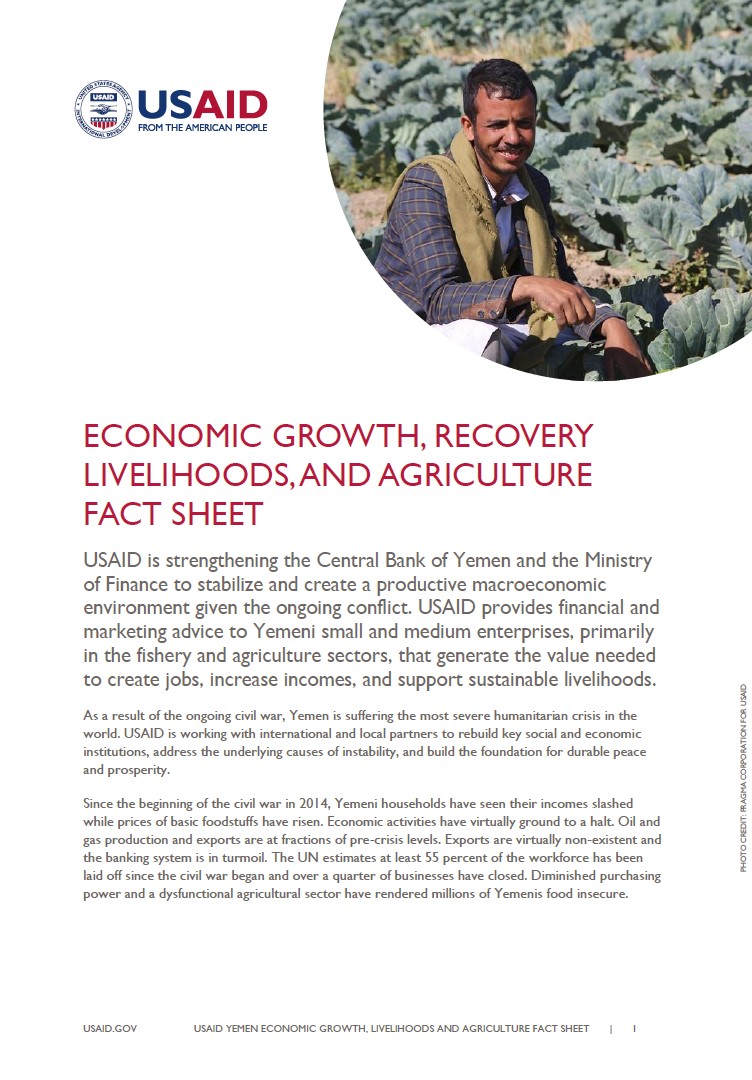Speeches Shim

USAID is strengthening the Central Bank of Yemen and the Ministry of Finance to stabilize and create a productive macroeconomic environment given the ongoing conflict. USAID provides financial and marketing advice to Yemeni small and medium enterprises, primarily in the fishery and agriculture sectors, that generate the value needed to create jobs, increase incomes, and support sustainable livelihoods.
As a result of the ongoing civil war, Yemen is suffering the most severe humanitarian crisis in the world. USAID is working with international and local partners to rebuild key social and economic institutions, address the underlying causes of instability, and build the foundation for durable peace and prosperity.
Since the beginning of the civil war in 2014, Yemeni households have seen their incomes slashed while prices of basic foodstuffs have risen. Economic activities have virtually ground to a halt. Oil and gas production and exports are at fractions of pre-crisis levels. Exports are virtually non-existent and the banking system is in turmoil. The UN estimates at least 55 percent of the workforce has been laid off since the civil war began and over a quarter of businesses have closed. Diminished purchasing power and a dysfunctional agricultural sector have rendered millions of Yemenis food insecure.
USAID'S RESPONSE AND EXPECTED RESULTS
USAID and the private sector are working to ensure that job creation and income enhancing opportunities reach a broad spectrum of Yemenis, including women, youth, and ex-combatants. USAID supports the Republic of Yemen Government (ROYG) in advancing macroeconomic reforms critical to stabilizing a collapsing economy and reestablishing a functioning trade regime. Such work includes capacity-building in the Central Bank of Yemen (CBY) and the Ministry of Finance (MOF), as well as facilitating the flow of commercial and humanitarian goods and services through Yemen’s borders and ports. USAID programs also directly support small and medium-sized enterprises to improve fish and farm productivity and establish linkages to domestic and international markets. Ultimately, USAID economic interventions are designed to increase employment and incomes of Yemeni households and sustain their livelihoods.
The Economic Recovery and Livelihoods Program (ERLP) will strengthen key institutions in Yemen to improve economic growth and stability, and raise household income by supporting small and medium-sized enterprises, especially in the agricultural and fisheries sectors. The program will build the capacity of economic institutions administered by the Republic of Yemen Government – most critically the CBY, MOF, Yemen Customs Authority and port authorities. These strengthened institutions will improve public budget management, increase international commercial trade flows and enable more humanitarian goods to reach vulnerable populations in Yemen.
ERLP builds on the achievements of the Yemen Economic Stabilization and Success (YESS) program, which over three years expanded employment opportunities for more than 3,000 Yemeni youth through job creation and placement, provided livelihoods support to more than 7,000 farmers, launched a breakthrough initiative to facilitate trade at the major port of Aden, and advised the CBY to implement major macro-financial reforms. Technical assistance to the CBY will continue a multi-donor effort to restore management of the financial sector and improve liquidity conditions by strengthening key central banking functions, such as currency management and foreign exchange operations, ensuring sustainability of economic reforms necessary to Yemen’s long-term resilience.


Comment
Make a general inquiry or suggest an improvement.